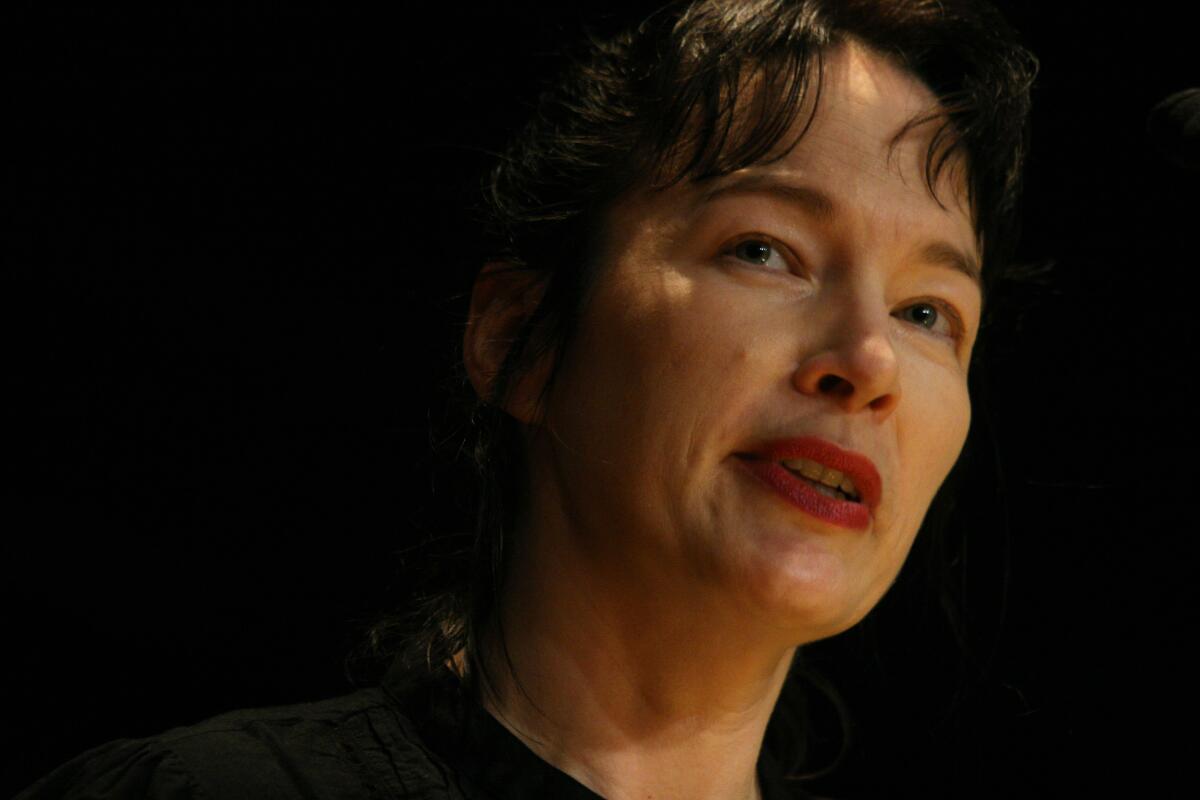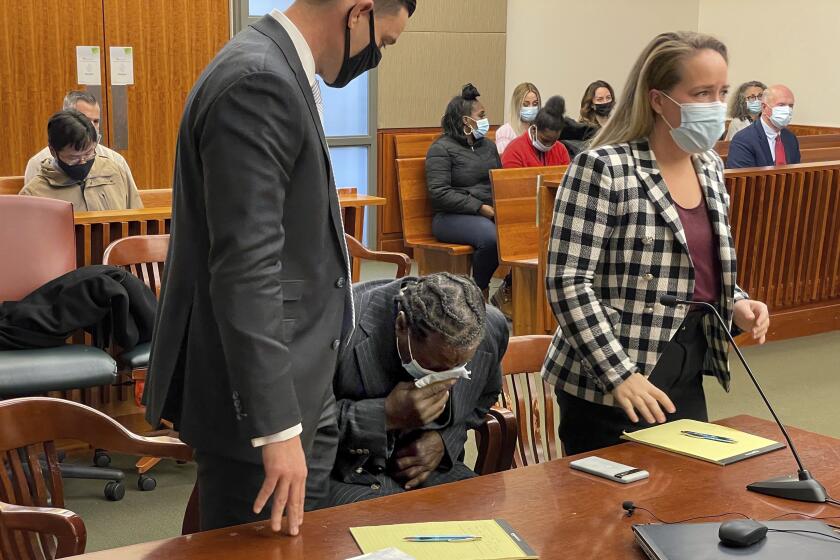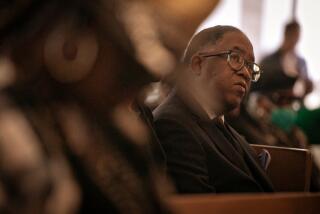Alice Sebold’s memoir, ‘Lucky,’ pulled as she apologizes to man wrongly convicted of her rape

Alice Sebold, the author whose 1999 memoir “Lucky” revisited the 1981 rape she suffered when she was a freshman in college, is apologizing to the man who spent 16 years behind bars for the crime, eight days after his conviction was overturned.
“I am truly sorry to Anthony Broadwater and I deeply regret what you have been through,” Sebold said Tuesday in a statement posted on Medium.
“I am sorry most of all for the fact that the life you could have led was unjustly robbed from you, and I know that no apology can change what happened to you and never will. Of the many things I wish for you, I hope most of all that you and your family will be granted the time and privacy to heal.”
Also on Tuesday, “Lucky” publisher Scribner released a statement announcing that, following Broadwater’s exoneration, distribution of all formats of the book would cease “while Sebold and Scribner together consider how the work might be revised.” Scribner said it had consulted with the author in making the decision.
Broadwater, a Black man, was convicted in 1982 after Sebold, who is white, identified him in court as her attacker despite failing to identify him previously in a police lineup. Broadwater was also tied to the crime by microscopic hair analysis, which has since been declared to be broadly unreliable by the U.S. Department of Justice.
The conviction was overturned last Monday by a trial judge in New York. In a hearing, the Onondaga County district attorney told the judge, “I’m not going to sully this proceeding by saying, ‘I’m sorry.’ That doesn’t cut it. This should never have happened.”
In her statement, Sebold explained her week of silence in the wake of Broadwater’s exoneration. “It has taken me these past eight days to comprehend how this could have happened,” Sebold said. “I will continue to struggle with the role that I unwittingly played within a system that sent an innocent man to jail. I will also grapple with the fact that my rapist will, in all likelihood, never be known, may have gone on to rape other women, and certainly will never serve the time in prison that Mr. Broadwater did.”
A rape conviction at the center of a memoir by author Alice Sebold is overturned because of what authorities found were serious flaws with the prosecution.
Sebold, 58, wrote in “Lucky” about spotting a Black man in the street, months after her rape, and being certain he was her attacker.
“He was smiling as he approached. He recognized me. It was a stroll in the park to him; he had met an acquaintance on the street,” she wrote. “‘Hey, girl,’ he said. ‘Don’t I know you from somewhere?’”
Sebold wrote that she didn’t respond but looked directly at him and knew “his face had been the face over me in the tunnel,” where she had been raped.
But she didn’t know the man’s name, and police couldn’t find him in a sweep of the neighborhood after she reported him. An officer suggested it must have been Broadwater, who had supposedly been seen in the area. He was arrested and convicted, finishing his prison term in 1999.
Sebold also wrote in “Lucky” that she realized what the defense would argue: “A panicked white girl saw a black man on the street. He spoke familiarly to her and in her mind she connected this to her rape. She was accusing the wrong man.”
The author said in her statement that “40 years ago, as a traumatized 18-year-old rape victim, I chose to put my faith in the American legal system. My goal in 1982 was justice — not to perpetuate injustice. And certainly not to forever, and irreparably, alter a young man’s life by the very crime that had altered mine.”
Sebold, whose subsequent novels “The Lovely Bones” and “The Almost Moon” became major bestsellers, noted that today’s discussion of systemic flaws in the justice system “was not a debate, or a conversation, or even a whisper” in 1981.
Sitting beneath a table umbrella in the backyard of her 1920s bungalow on this patently sunny Southern California day, Alice Sebold is nearly two decades and a continent away from the dark tunnel where her innocence was stolen.
Her memoir may have indirectly helped vindicate Broadwater. “Lucky” was being adapted into a film when discrepancies between the memoir and the first script adaptation prompted executive producer Tim Mucciante to question the story.
“I started having some doubts, not about the story that Alice told about her assault, which was tragic, but the second part of her book about the trial, which didn’t hang together,” Mucciante told the New York Times.
After dropping out of the project in June over his concerns, Mucciante hired a private investigator to look into the evidence against Broadwater, only to learn that it didn’t hold up. The PI suggested Mucciante should bring the results of the investigation to a lawyer. That lawyer, David Hammond, wound up representing Broadwater successfully in court along with defense attorney Melissa K. Swartz.
The “Lucky” film project, which was to have starred “You” actress Victoria Pedretti, was abandoned several months ago after losing its financing, Variety reported.
Of fate, heaven and ‘Lovely Bones’
“I just hope and pray that maybe Ms. Sebold will come forward and say, ‘Hey, I made a grave mistake,’ and give me an apology,” Broadwater told the New York Times a week ago. “I sympathize with her. But she was wrong.”
On Tuesday, he got his apology.
“Throughout my life, I have always tried to act with integrity and to speak from a place of honesty,” Sebold said in concluding her statement. “And so, I state here clearly that I will remain sorry for the rest of my life that while pursuing justice through the legal system, my own misfortune resulted in Mr. Broadwater’s unfair conviction for which he has served not only 16 years behind bars but in ways that further serve to wound and stigmatize, nearly a full life sentence.”
The Associated Press contributed to this report.
More to Read
Sign up for our Book Club newsletter
Get the latest news, events and more from the Los Angeles Times Book Club, and help us get L.A. reading and talking.
You may occasionally receive promotional content from the Los Angeles Times.









